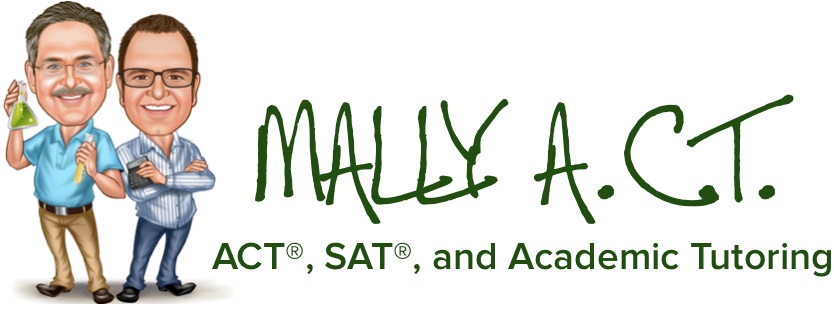ACT Prep: "How Many Sessions Does My Student Need?"
/Many times, when a parent first calls Mally A.C.T., they will ask us how many ACT or SAT tutoring sessions we recommend. While this is a standard question, it is one of the most difficult questions to answer because each student is different.
Does the student have a baseline score?
What is the breakdown of those scores? What is their goal score?
What colleges are the students considering applying to?
What is their GPA? What is their current math class?
Does the student have any testing accommodations?
The list of questions we'd have to follow up with goes on and on.
At Mally A.C.T. (and all ACT and SAT tutors for what it's worth), we need to know these answers so we can make an appropriate recommendation of sessions in each subject and place each student with one of our diverse tutors to best fit their needs. We aren’t going to make the same recommendation for a student with an 18 composite score on the ACT looking to score a 25 as we would for a student at a 30 looking to score a 33.
Most importantly, students need to have the time to put the necessary effort into improving their scores. High school juniors have a very busy year and there are many factors that can impact their progress.
Time Constraints
During the school year, we see students that are swamped with activities. They have school Monday through Friday, sports, extra-curricular activities, and their own personal lives to accommodate. Students’ time constraints can impact their improvement, as they attempt to juggle all of these activities every day. These time constraints can limit how students improve by pushing them to practice take tests at bad times, while distracted or without sufficient preparation.
Stress
Students’ feelings of stress can undermine their efficacy in and out of sessions. If students feel anxious or overwhelmed, they will probably have a harder time concentrating during the session. As a result, it will be hard to get the most out of it. If they feel stressed when they are taking a practice test, they will be distracted, and their score will reflect that. The good news is that help is on the way with our test anxiety prevention sessions.
Study Habits
A final factor that can impact students’ improvement is their study habits. Often, students think that all they need to do is read over the tip sheet or the study packets we give them before they take the practice test. However, simply reading something over once is passive studying, which is ineffective. Cramming can also frustrate students’ improvement. By adopting effective study habits, students can make the most of their sessions.


